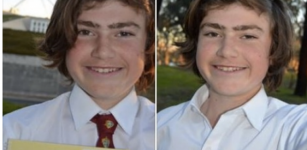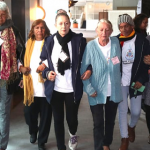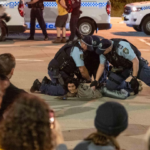Posting Pictures Like These Can Put Your Child in Danger

Facebook has been around for more than 20 years. There’s a generation of kids who’ve grown up not knowing a time before social media sites like Facebook, Twitter, Pinterest and Instagram.
Facebook is the number one site that keeps us connected 24/7, not just to information and organisations we’re interested in, but to friends and family members too.
By any measure, most of us are pretty experienced Facebook users. But sometimes, experience can lead to complacency and, as much as we think of the fun and informative side of social media, it has a dark side too.
Regrettably, technology has made crimes like ‘revenge porn’, intimidation and bullying easier to perpetrate and often more devastating – largely due to social media’s ability to spread information to more people, faster.
Some crimes have found a new lease of life online, including particularly heinous offences like child pornography, grooming, procuring and other child sex offences.
With this in mind, the Australian Federal Police (AFP) has issued a timely reminder that a picture can speak a thousand words, and we need to be mindful about what is posted online; especially when it comes to our kids.
Keeping your children’s lives private
The two images above are typical of what a proud parent might share on Facebook, announcing an award or an end of year milestone. Or perhaps it’s the kind your child’s best mate might post, sharing a memorable school excursion, or even a selfie posted by your own child.
But be warned – the image on the left gives a lot of information about this child, including:
- A name on the book he’s holding, most likely his own.
- Grade 10 – which indicates his age.
- An iconic building in the background – Parliament house, suggesting he’s in Canberra at the time, and
- An emblem on his tie, revealing the school he attends.
Detectives who work in the area of online child abuse have used the photo to remind parents that what we think is harmless, can actually put our children at risk.
Privacy is never guaranteed
Cyber safety experts say that no matter how tight your social media security settings are, you have no control over an image once it has been posted online.
“It doesn’t matter if you post a photo that you think only your friends can see,” warns a
spokesperson for police. “You’ve actually lost all control over that image and you then should have no expectations, after doing that, of any privacy in relation to that image.”
“We stress it all the time, once you post that image, don’t think you have any control over it. Because you’ve lost control the moment you’ve posted it online.”
Parents taking responsibility
If children have social media accounts, parents and guardians are well advised to ensure they understand the ramifications of sharing information online.
Facebook says account holders must be 13, Instagram, Twitter and Snapchat say the same, but it is difficult for these companies to police this requirement, and children much younger are opening their own accounts by the tens of thousands.
Children should also be taught that the internet has a long memory, and what they post now could haunt them in years to come, especially if its not entirely appropriate.
It’s also important for parents to know what their kids are sharing, and who they are sharing it with.
No one is immune from having their privacy obliterated – whether through an online post or other digital share – as demonstrated by the case of a 14-year old girl in Ireland who is suing Facebook because her naked image ended up on a revenge porn site numerous times over the course of more than a year.
Police say there are also many cases where child sexual predators have used information from images to target, befriend and groom children.
Safety tips
Given the dangers of social media, police are advising parents to consider:
- Encouraging children to use the most secure privacy settings for their online accounts.
- Looking at privacy policies of the sites and applications their children.
- Talking to children what information should never be shared, whatever the medium.
- Only having people they know and trust as online friend and contacts.
- Befriending and following and monitoring what they’re doing, without being overly invasive.
Beware ‘geotagging’
With the spread of smartphones and apps, geotagging is also a potential threat to privacy, safety and security.
Geotagging is the embedding of location data, such as GPS coordinates, in images taken on smartphones. When photos taken by a smartphone are uploaded and shared online, the location data is also shared and can be read by other users to ascertain the location of where the image was taken.
Other metadata, like EXIF data holds information on the camera itself, as well as the exact date, time and more. This means that even photos without a face in them can be linked to a person, their location, the date and time.
While it is possible to disable geotagging on both mobile devices and social media accounts, other privacy pitfalls include using the ‘checking in’ function that allows you to post your location – making it easy for anyone to know where you are at any given time.
Dangers of the profile picture
Selfies can be fun, and most people tend to get creative with photo apps that can give you angel wings, or dog ears or whatever crazy photo effect you might want for your picture.
But police warn that profile shots which clearly show your face are often used to perpetrate identity fraud.
There’s no doubt that social media has opened up the wonderful experience of instant connection with family and friends all around the globe, as well as enabling us to access interesting information and ideas at the touch of a button.
But cyberspace is not all fun and games, there’s a serious side too, and it’s important to be aware of the dangers and the implications of what we post online, and to set firm boundaries for our children.







